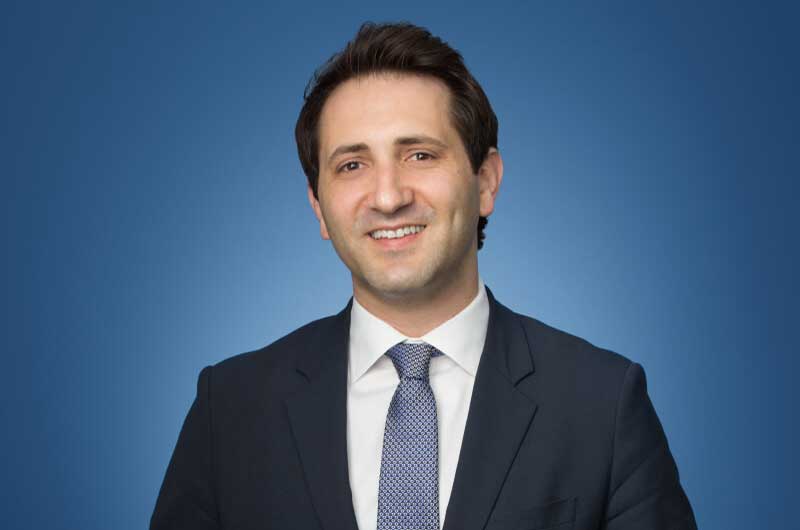I love the feeling of when attorneys in our law firm are becoming masters of something better than me. Our policyholder clients and referral sources get better service than any other law firm because we share information, ideas, and methods for full recovery focusing on one area of law—first-party property insurance claims. Other law firms simply do not have the ability or inclination to invest time and money. We become subject matter experts and better than we could if we were not in our firm.
Last Thursday, I attended the California Association of Public Insurance Adjusters (CAPIA) conference. I listened and watched Derek Chaiken as he gave a presentation on “How To Avoid Getting Contents Claims Denied or Rejected.” I leaned over to Rob Rahmani, who is out of our Century City office in Los Angeles, and said, “Derek’s crazy clients with crazy claims in Southern California have made him a master at contents claims.” Rob nodded and agreed with me.
Whether a policyholder is a business owner dealing with sophisticated personal property machinery or inventory losses or a residential policyholder who is dealing with extraordinarily expensive items of value, the truth is that most company and independent property insurance adjusters are taught relatively nothing about the adjustment of business or personal property losses. The vast majority of all claims training has to do with the cost to repair real property damage. Contents and inventory are very much second-class stepsisters and are often overlooked.
I have written about this in the past. In one article, Contents Claims Are Important and FedNat Does Not Adjust Contents Claims, I noted that;
Contents claims are often overlooked. Some insurance companies, like FedNat, fail to adjust contents claims and only estimate and adjust real property insurance claims until their customer does the good faith work of investigation and evaluation for them.
Chubb Insurance usually does a great job of adjusting the contents losses of their customers. Not only does Chubb have contents experts typically make certain that their customers get paid the full replacement cost of contents for losses right away, but they also have sub-experts for the evaluation of items. For example, I had a couple that had a water loss, and the furs in their closet became wet. Chubb had a ‘clothier contents expert’ who was able to quickly determine which furs could be repaired and which needed to be fully replaced. The expert added sales tax and acquisition costs and came up with a full replacement cost value. In Florida and in many states, contents losses are simply not adjusted by the insurance companies that insure the losses.
Chubb’s action is what good faith contents claims adjustment is all about. Many companies do no adjustment of the contents claim. Instead, they make estimates of the real property and conveniently forget to do anything about the contents. The failure to investigate coverage for contents and evaluate the contents loss is a failure to act in good faith. Unfortunately, many insurance companies intentionally choose not to act in good faith regarding contents claims because it is profitable. FedNat is one of them.
FedNat has recently declared bankruptcy.
In another article I wrote a decade ago regarding contents and personal property claims, Contents Claim Adjusting Is Tedious, Time Consuming and Few Insurance Carriers Do It Right, I wrote:
Contents claims adjusting is a hard and tedious job. Few insurance companies conduct a prompt investigation and evaluation of contents losses even though they may be evaluating the real property damage. It is probably the most ripe and overlooked arena for unfair claims practice conduct by insurance companies on typical claims.
Why? The answer lies in the procedures demanded by claims managers and the incentives not to adjust in ‘good faith.’ As I explained in Adjustment of Claims is 100 Percent Policyholder Service–Is The Insurance Industry Providing This Service?, insurance companies that promptly investigate claims, explain policy benefits, and make certain their customers are getting promptly paid everything due are acting in ‘good faith.’ This adjustment conduct is required in ‘good faith’ claims conduct. Insurers that adjust claims in good faith will promptly paying more than competitors that cheat their insureds by delaying adjustment, failing to investigate, failing to explain coverages, studied blundering, and quietly failing to pay full benefits. These cheating and unethical insurance companies save money on claims expenses and indemnity dollars. It is a huge competitive incentive that most insurance company claims departments act upon as a cultural norm because there few personal and group incentives which reward individual and group acts of ‘good faith.’
Who has ever heard of an insurer giving awards to adjusters and claims departments for fully paying policyholders? Instead, incentive programs at most claims departments reward lowering or achieving claims severity, claims accuracy, lowering leakage, etc. Nobody gets claims department ‘gold stars’ for explaining benefits to a policyholder that will require the insurer to pay tens of thousands of dollars legitimately owed. In most companies, such conduct will get you chastised and fired. Can you imagine claim department managers talking over beers and crowing about how somebody in their claim unit helped a policyholder make a claim for an extra million dollars that was almost missed? When I ask my claims adjuster buddies whether that happens, they look dumbfounded and wonder what rock I crawled out from under. The fault lies with executives at insurance companies for creating a claims culture obsessed with not paying too much rather than taking care of the customer to the fullest extent promised.
Insurance company adjusters usually handle contents claims by handing the policyholder numerous blank forms and asking the policyholder to investigate and evaluate the loss by listing details about every article damaged or lost. With such acts, the insurance adjuster turns the policy from one with promised service by the insurer to a self-service policy. Most policyholders, not knowing the insurer should be assisting, take the forms and then, when they can, start the tedious task of remembering what was destroyed or lost, figuring out if it can be repaired, the original cost, the age, the condition (if asked), and come up with values from a search on the internet. To the joy of many cheating insurance companies, many policyholders give up and fail to make a full claim. Think of how many gift cards you have received as a present and how many you failed to use because you forgot about them. Get the picture of how profitable it is for an insurer to not act in good faith when adjusting contents claims?
Derek Chaiken gets a gold star for speaking on this topic. He has become a subject matter expert. There is a lot to be learned, and experience matters a lot.
For policyholders and those with contents and inventory claims of policyholders not being fully paid, you know where the experts are. We can help.
We invite those passionate about policyholders receiving full indemnity regarding personal property or inventory claims to join us as we study this area of property insurance law. Policyholders need help. The insurance industry seems to be shutting a blind eye to this significant area of loss.
Thought For The Day
Ten thousand hours of study or action is the magic number to become great or an expert in anything.
—Malcolm Gladwell




